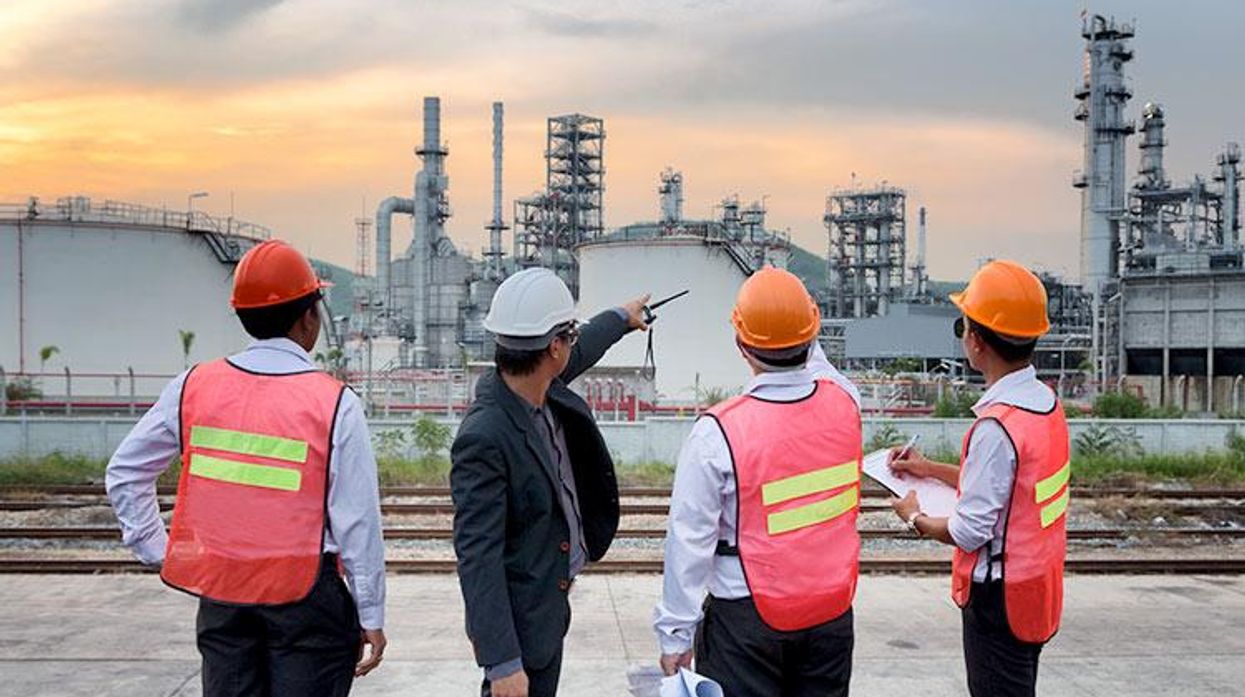Voices
Intertwined: The Labor Movement and LGBT Rights

The president of the AFL-CIO has a message for the Pride season.
June 26 2018 7:02 AM EST
By continuing to use our site, you agree to our Privacy Policy and Terms of Use.

The president of the AFL-CIO has a message for the Pride season.
Through all the celebration of LGBTQ Pride this month, there's been a valuable opportunity to reflect on the hard-fought victories, brutal setbacks, and tenacious struggles that have ultimately delivered so much for so many. And just as importantly, there has been time to think about what lies ahead in that fight for justice.
By the time I was elected president of the United Mine Workers of America in 1982, the fight for LGBTQ rights was already in full swing. Thirteen years after the Stonewall riots, activists were marching, shouting, and organizing for the basic dignities they had been denied for so long. It was a groundbreaking movement for equal treatment in all the fundamental facets of life, from employment and housing to health care and personal safety.
These pioneers knew that change wasn't simply going to be handed down from the halls of power or granted as an act of corporate benevolence. Change would only come when a diverse and united front stood together to demand it. In the face of unrepentant bigotry and blind loyalty to the status quo, grassroots organizing led the way forward.
It's a basic principle that has always been at the heart of the labor movement. Progress, steadily gained, is fueled by the power of a mobilized community. Every victory in the fight against oppression has ultimately been achieved by that spirit of solidarity.
That's certainly been true in the ongoing battle for justice on the job. From my first day in the coal mines of southwestern Pennsylvania, I knew that the only way to secure a brighter future was to lock arms and stand together. And that meant leaving no one behind.
That's why we at the UMWA were so proud to help secure some of the earliest protections for same-sex couples in our members' contracts, ensuring that all of our comrades had equal access to key benefits. We couldn't afford to wait until it was popular.
And so unions offered a new refuge for gay workers. A place where full equality wasn't just a mission, but an obligation.
Over the succeeding decades, LGBTQ Americans have won a flurry of progress. Public opinion shifted in favor of equality. Prominent figures, from sports to entertainment to politics, came out of the closet. Institutional disdain for the community gave way to unbending advocacy of justice. Trans rights were lifted up, the armed forces' closet door was knocked down, and the constitutional right to marriage was unequivocally affirmed.
Perhaps no movement for social change has achieved so much so quickly. But even in a sea of rainbow flags -- and even with marriage equality secured -- there still remains too much of the discrimination endured by early protesters.
Today, you are free to marry who you love. But in most states, you can still be fired because of who you are. Unless, of course, you have the protection of a union contract.
The truth is that many of the fights left to be won are based on economic rights. They're rooted in workers' relationships with employers. The labor movement knows a thing or two about that.
The AFL-CIO's constituency group Pride at Work continues to lead the way in advocating for the dignity of LGBTQ workers. The rights codified in so many union contracts over the years --from couples' benefits to nondiscrimination to trans health care -- have made headway that simply couldn't have been gained otherwise.
For many LGBTQ Americans, a union card is their only form of employment protection. But more importantly, it signifies membership in a large and growing family ready to fight when it matters most.
That's what the labor movement is all about. And it's how the progress of tomorrow will be won.
So, here's my ask for this Pride Month: Join a union. Check out Pride at Work and tackle the workplace challenges facing LGBTQ Americans the way this movement always has: Organize, organize, organize.
RICHARD L. TRUMKA is president of the 12.5-million-member AFL-CIO.
Charlie Kirk DID say stoning gay people was the 'perfect law' — and these other heinous quotes